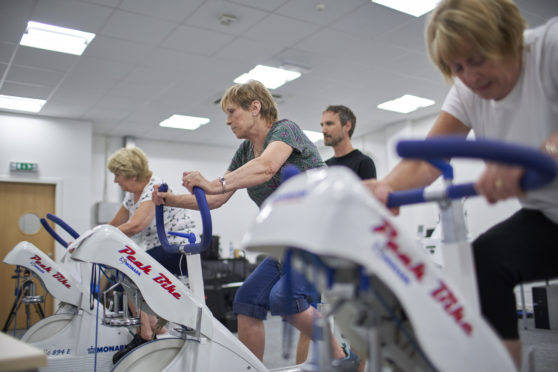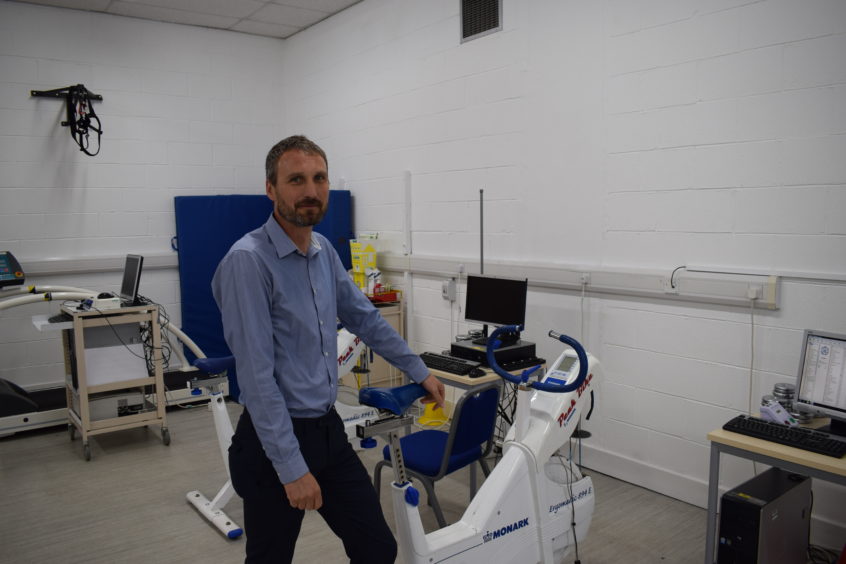Just one minute of exercise a week is enough to boost the health boost of people over the age of 65, researchers in Dundee have found.
A study from Abertay University has revealed a once-a-week session is enough to produce improvements in blood glucose control and general mobility in participants aged 65 to 75 years old.
Researchers asked individuals to take part in either once or twice-weekly training sessions for a period of eight weeks. Each had been living a sedentary lifestyle and had not been taking part in regular exercise
The participants took to stationary bikes and were asked to cycle as hard as they were able for six seconds before resting for at least a minute.
They repeated the process – which is known as sprint interval training (SIT) – until they had exercised for a total of one minute. Experts found the once weekly session was enough to produce improvements in their health.
Dr John Babraj, who led the study, said: “We’ve found that SIT, whether it’s done once a week or twice a week, improves the ability to get glucose out of the system.
“While those participating in the twice-weekly sessions observed a greater improvement, those taking part in the single session also observed change.
“Importantly, they also observed a difference in general function, greatly improving their ability to do everyday tasks such as getting up to answer a door and walk up and down stairs.
“These are major issues for older people. As we lose physical function, we start to become socially isolated, and as we become socially isolated our quality of life declines significantly.”
The ability to take glucose out of the blood declines with age, resulting in insulin resistance. This can lead to Type 2 Diabetes, and problems with the heart and liver.
Dr Babraj wants to see sprint interval training introduced to the government’s physical-activity guidelines.
He said: “Currently, older adults are advised to participate in at least 150 minutes of moderate intensity exercise each week, and that can be difficult to accrue.
“Both of our groups produced greater adaptations than what we would expect the smallest worthwhile change to be.
“Our results provide further support for the inclusion of this form of training in the guidelines as one of the methods to gain health benefits.”











